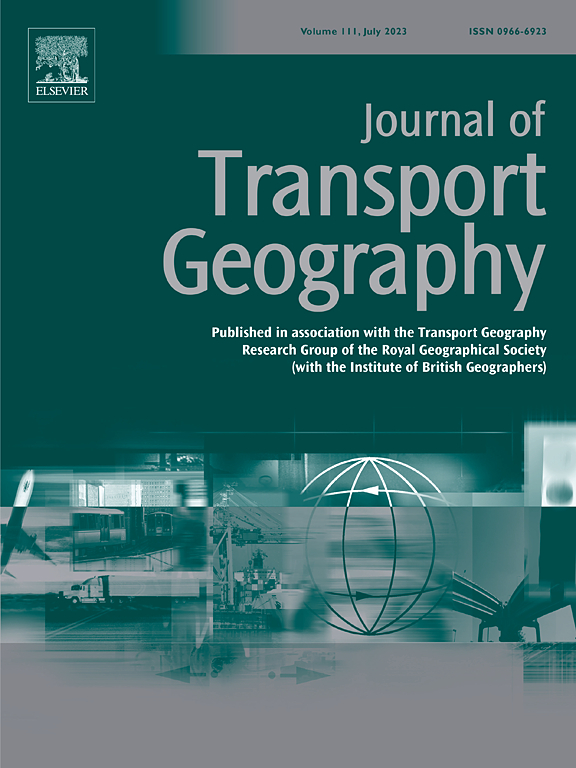The governance of emerging mobility technologies in Finland: A Q-methodology study
IF 6.3
2区 工程技术
Q1 ECONOMICS
引用次数: 0
Abstract
The recent emergence of numerous smart mobility technologies has raised difficult questions concerning the integration of transport and technology governance. To avoid undesirable sociotechnical trajectories and fill the institutional void that emerging technologies typically face, it is crucial to understand relevant actors' views – to explore the reasons for conflict and find common ground for structuring comprehensive and inclusive deliberation. We applied the Q-methodology to identify and analyse different viewpoints concerning the governance of emerging mobility technologies in Finland. A comprehensive sample of 84 people involved in the development and governance of Mobility-as-a-Service, transport automation and shared e-scooter services in Finland participated in the study. The analysis revealed three viewpoints of major interest. “The Cautious Innovators” prioritise risk aversion over the quick implementation of technologies. “The Enablers” view the development of mobility technologies as an international race and wish to maintain Finland's forerunner position. “The Disappointed Optimists” share the desire for the rapid implementation of new mobility technologies but express severe disappointment about how these technologies are currently governed in Finland. Based on the findings, we highlight challenges with the current governance approach and suggest improvements concerning participatory practices and actor roles. Finally, we lay out directions for future research, which should pay attention to the nuances of actor-level interactions and power relations across dynamic governance networks by utilising a broader base of social science concepts and methods.
芬兰新兴移动技术的治理:q -方法学研究
最近出现的许多智能移动技术提出了关于交通和技术治理一体化的难题。为了避免不受欢迎的社会技术轨迹,填补新兴技术通常面临的制度空白,理解相关参与者的观点至关重要——探索冲突的原因,并找到构建全面和包容性审议的共同点。我们应用q -方法论来识别和分析关于芬兰新兴移动技术治理的不同观点。参与芬兰移动即服务、运输自动化和共享电动滑板车服务的开发和治理的84人参与了这项研究。分析揭示了三个重要的观点。《谨慎的创新者》将风险规避置于技术的快速实施之上。“推动者”将移动技术的发展视为一场国际竞赛,并希望保持芬兰的领先地位。“失望的乐观主义者”分享了快速实施新的移动技术的愿望,但对这些技术目前在芬兰的管理方式表示严重失望。基于这些发现,我们强调了当前治理方法面临的挑战,并就参与性实践和行动者角色提出了改进建议。最后,我们提出了未来的研究方向,即应利用更广泛的社会科学概念和方法,关注动态治理网络中行为者层面的相互作用和权力关系的细微差别。
本文章由计算机程序翻译,如有差异,请以英文原文为准。
求助全文
约1分钟内获得全文
求助全文
来源期刊

Journal of Transport Geography
Multiple-
CiteScore
11.50
自引率
11.50%
发文量
197
期刊介绍:
A major resurgence has occurred in transport geography in the wake of political and policy changes, huge transport infrastructure projects and responses to urban traffic congestion. The Journal of Transport Geography provides a central focus for developments in this rapidly expanding sub-discipline.
 求助内容:
求助内容: 应助结果提醒方式:
应助结果提醒方式:


